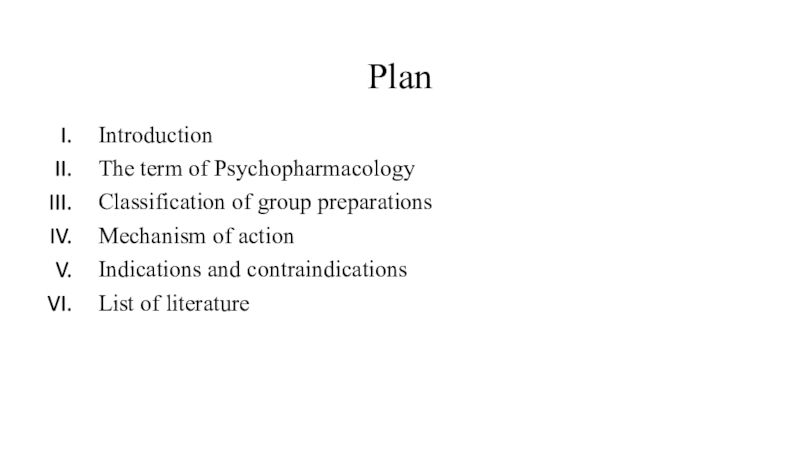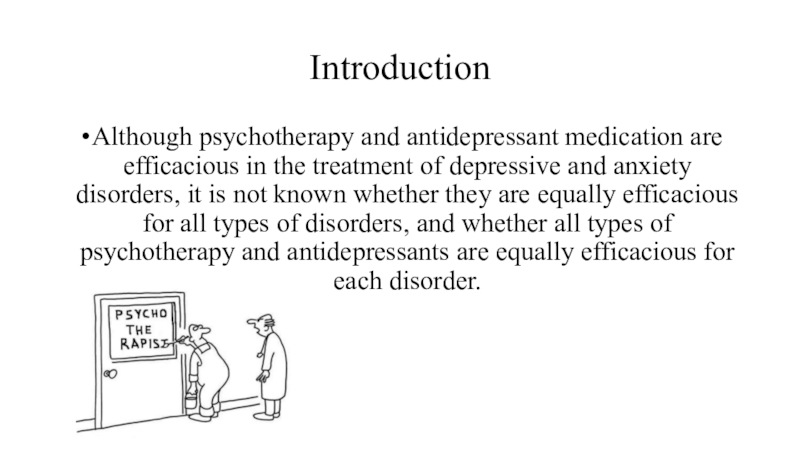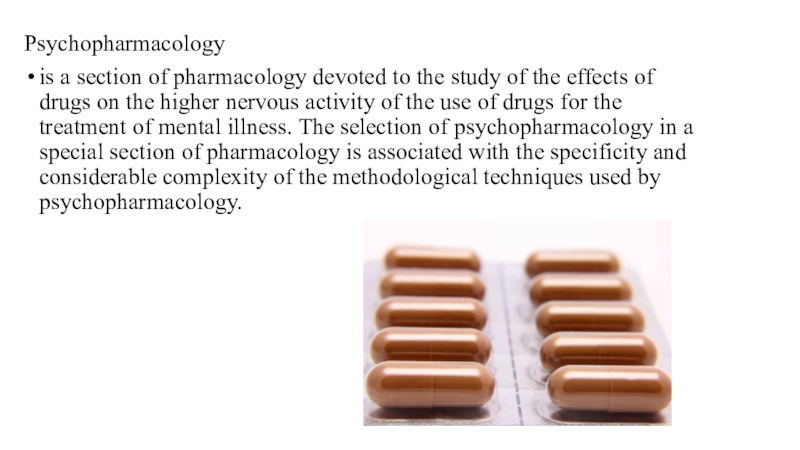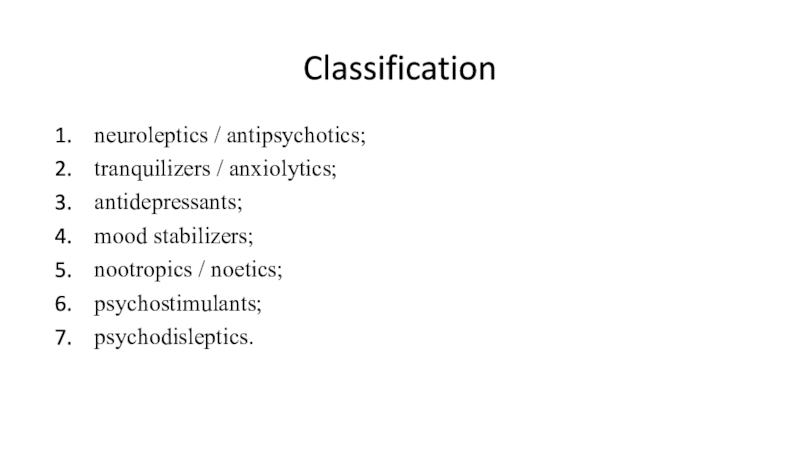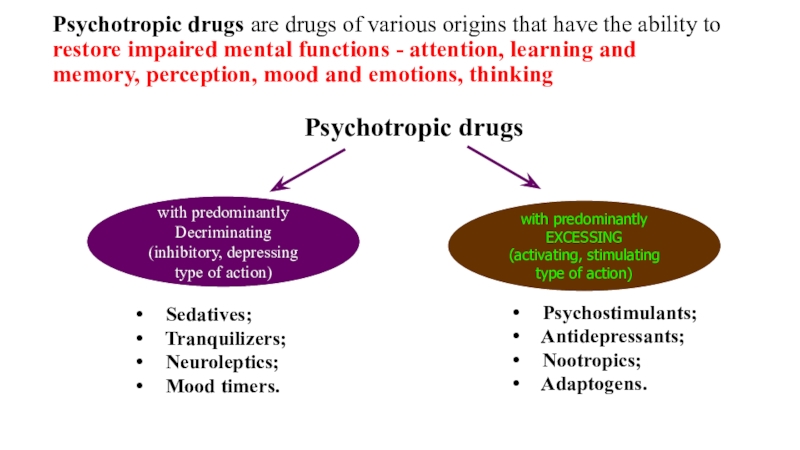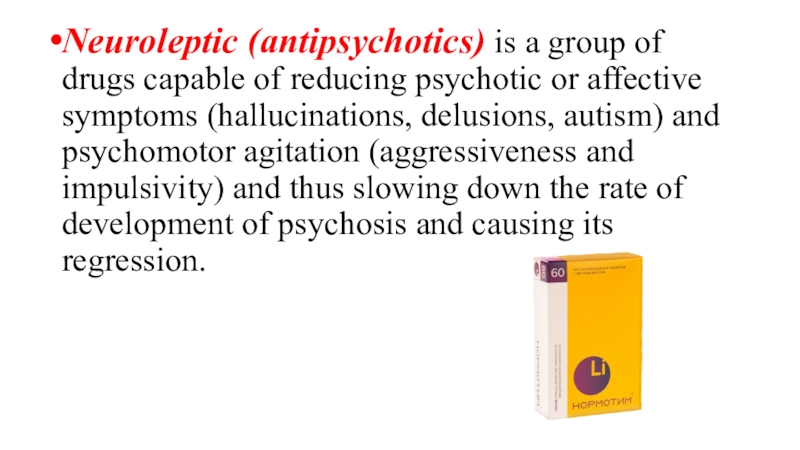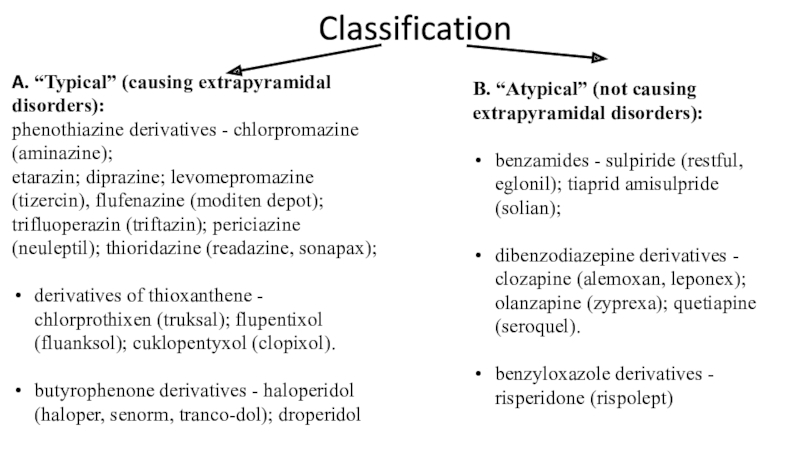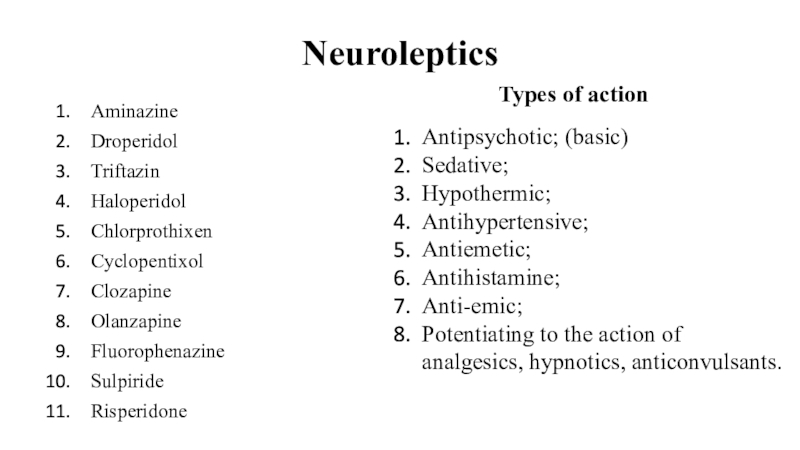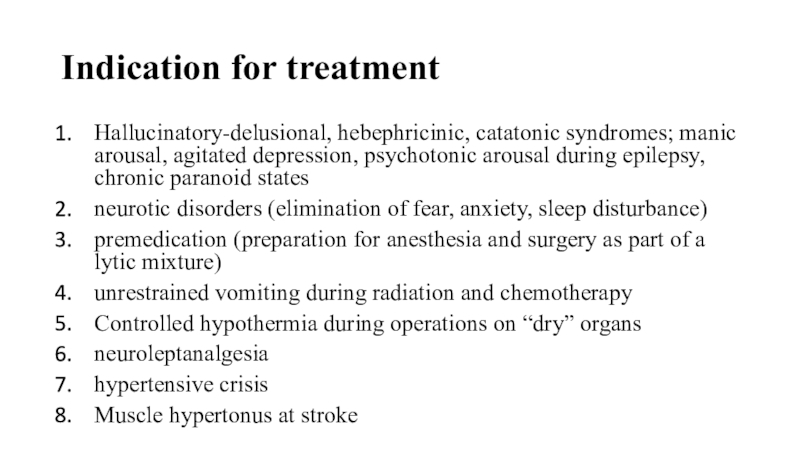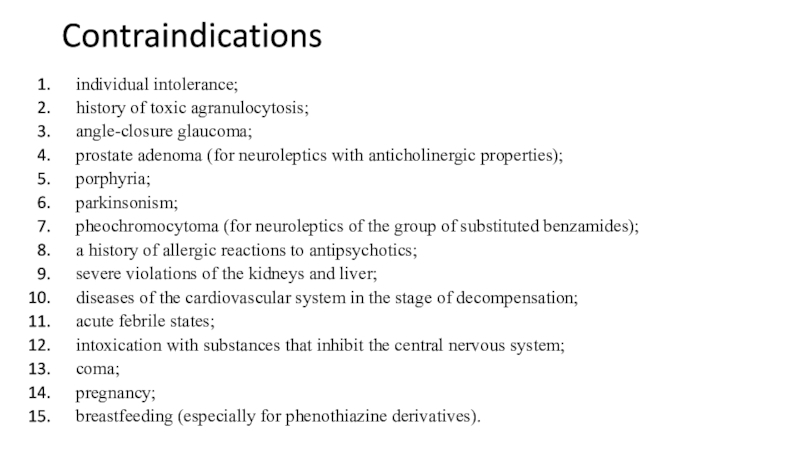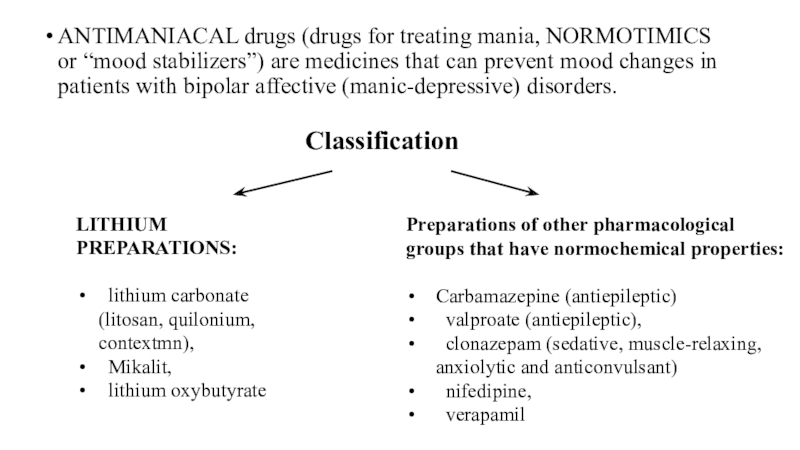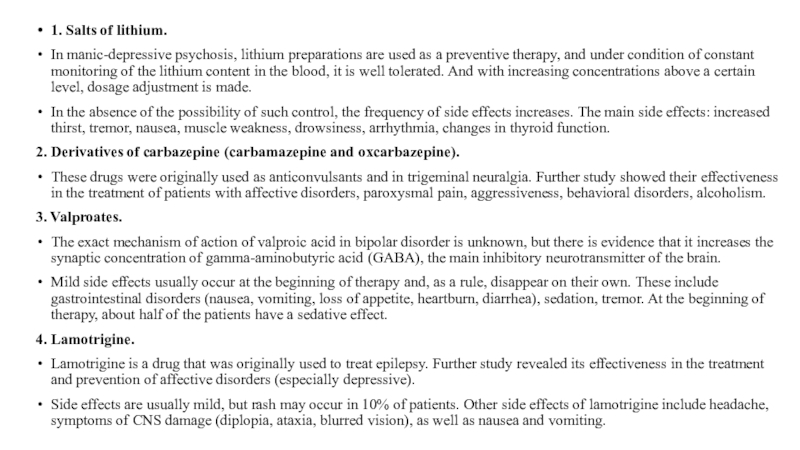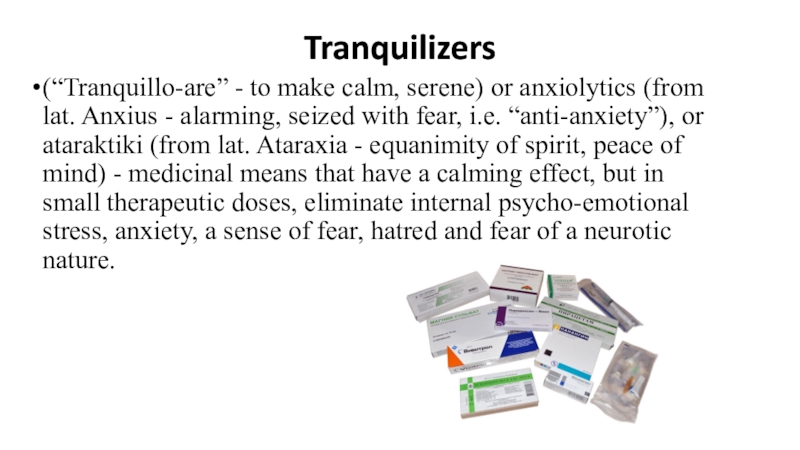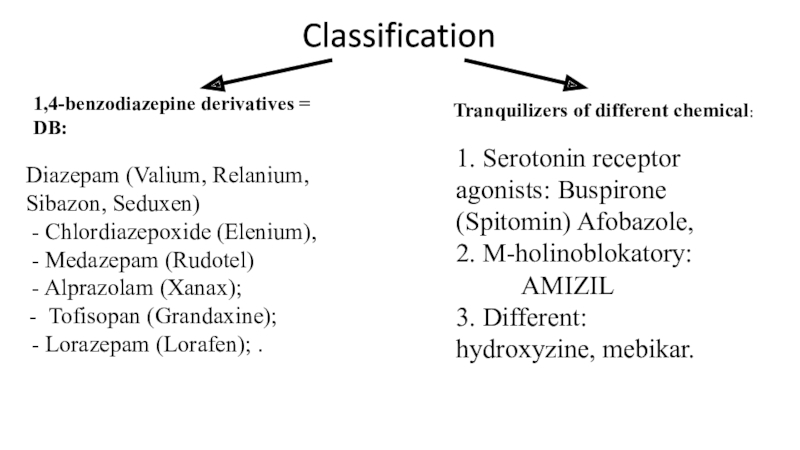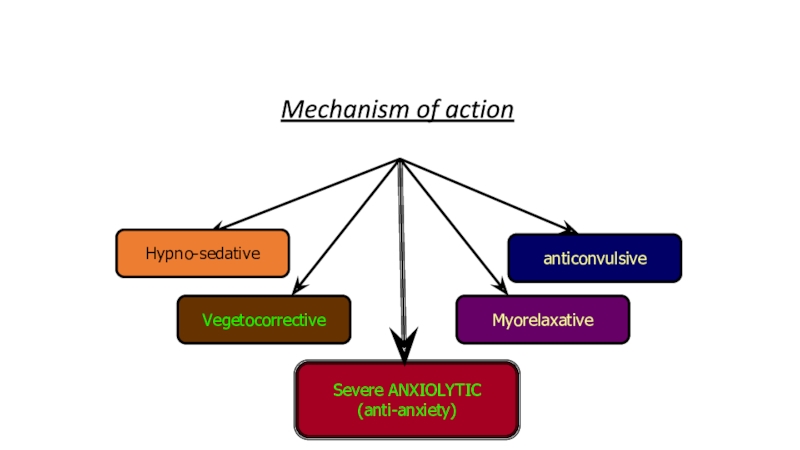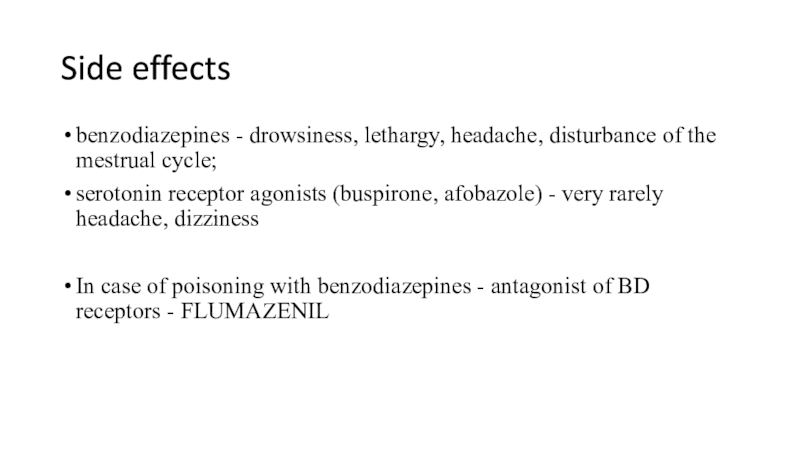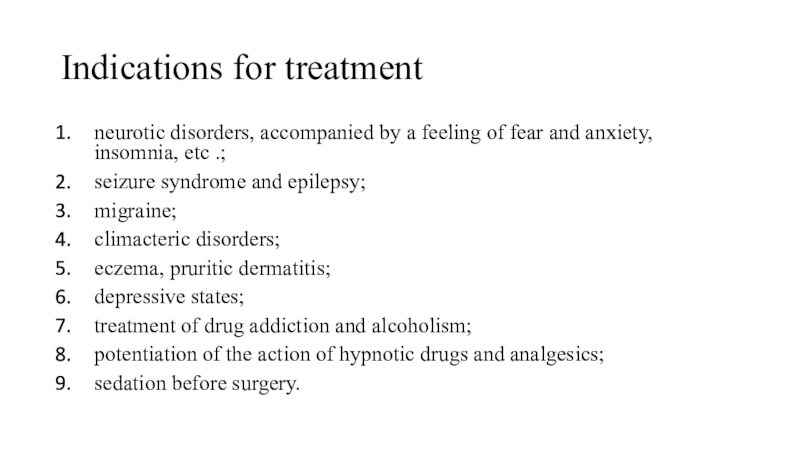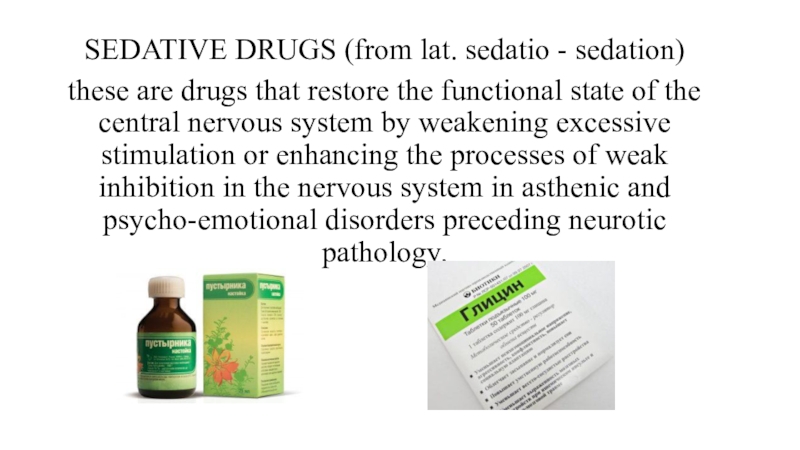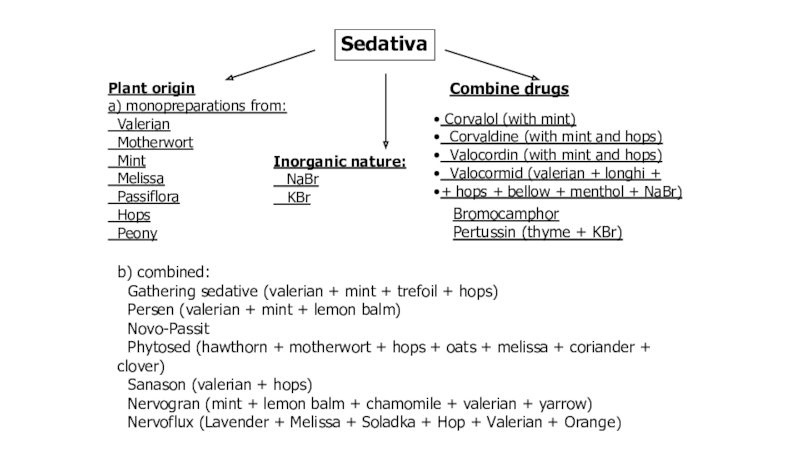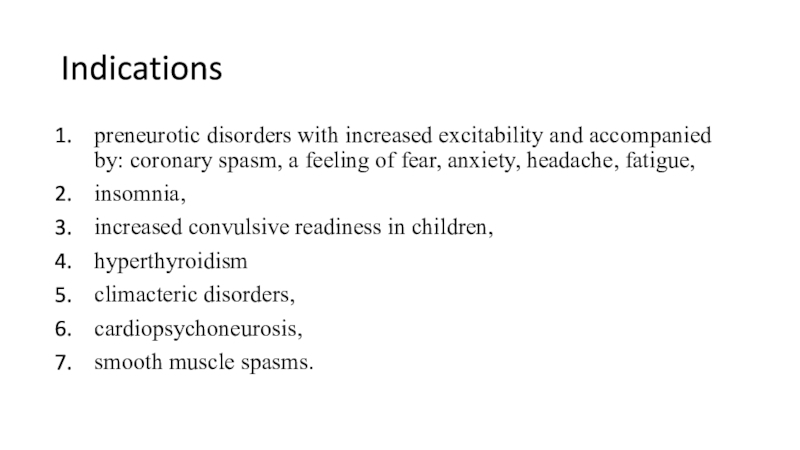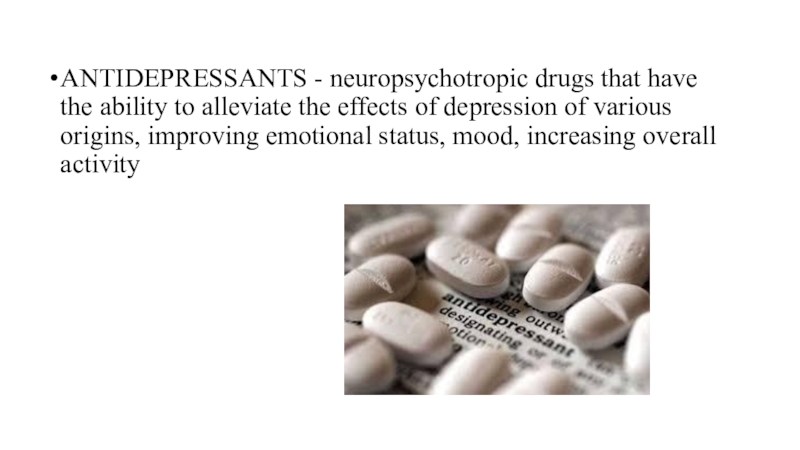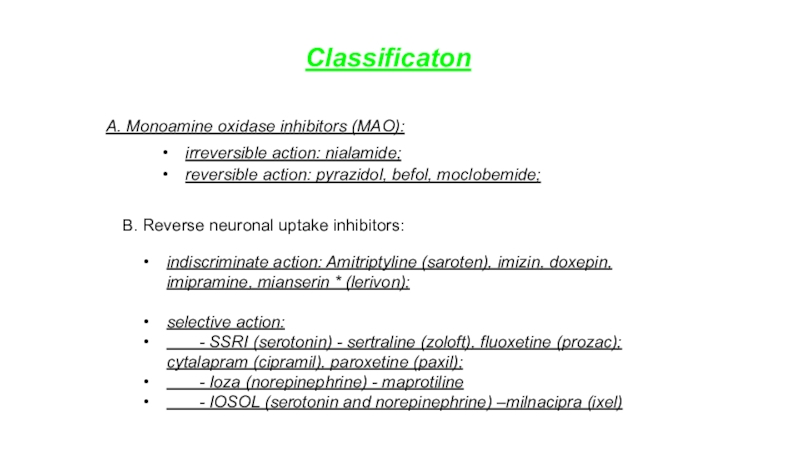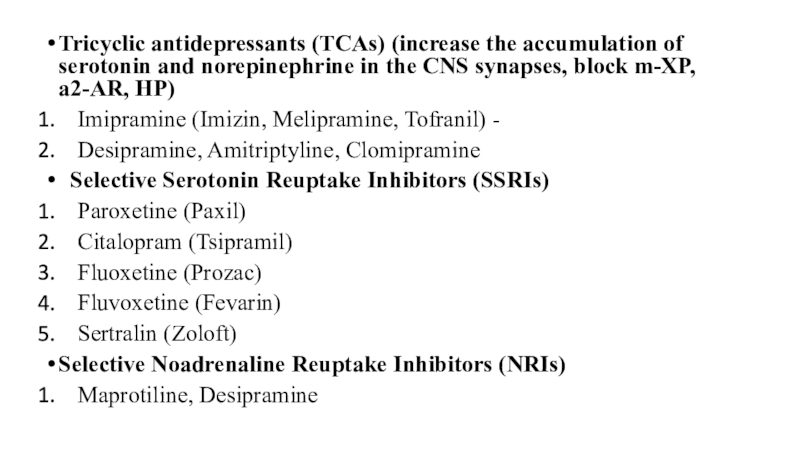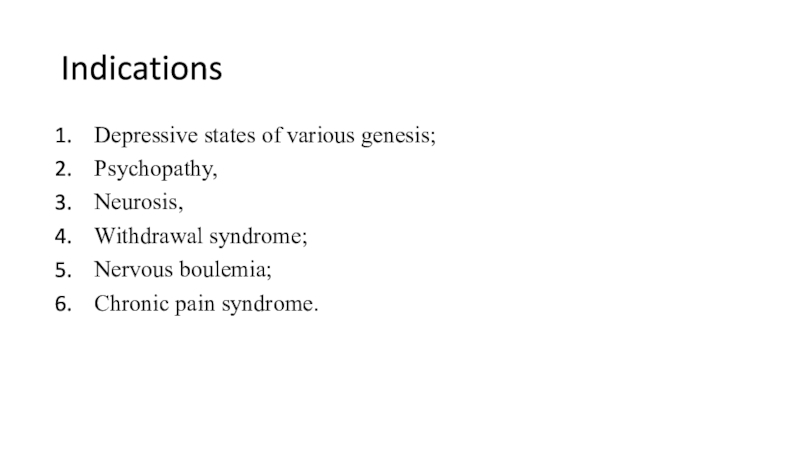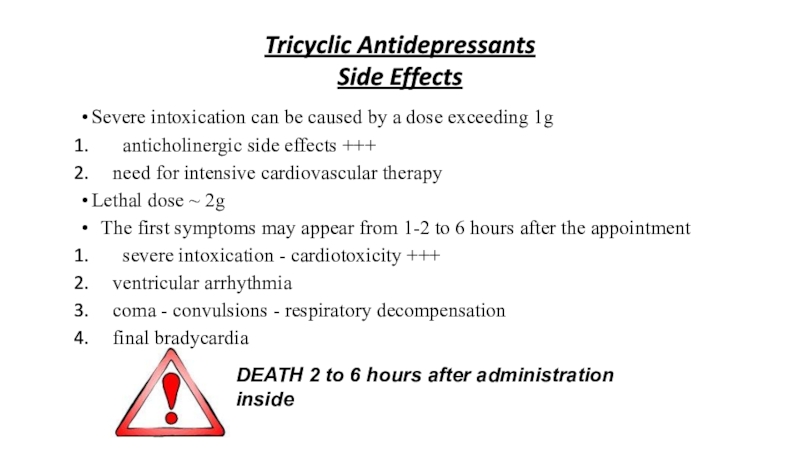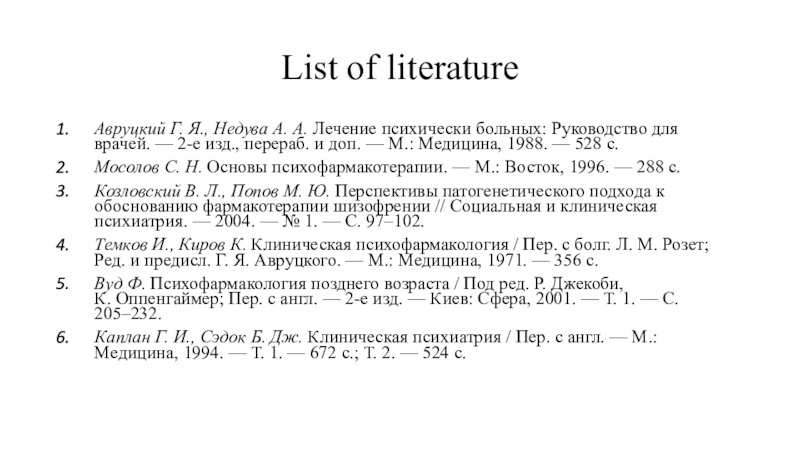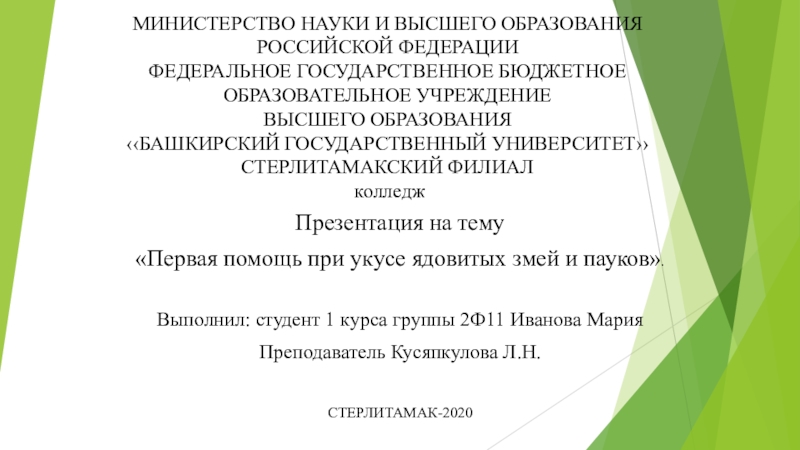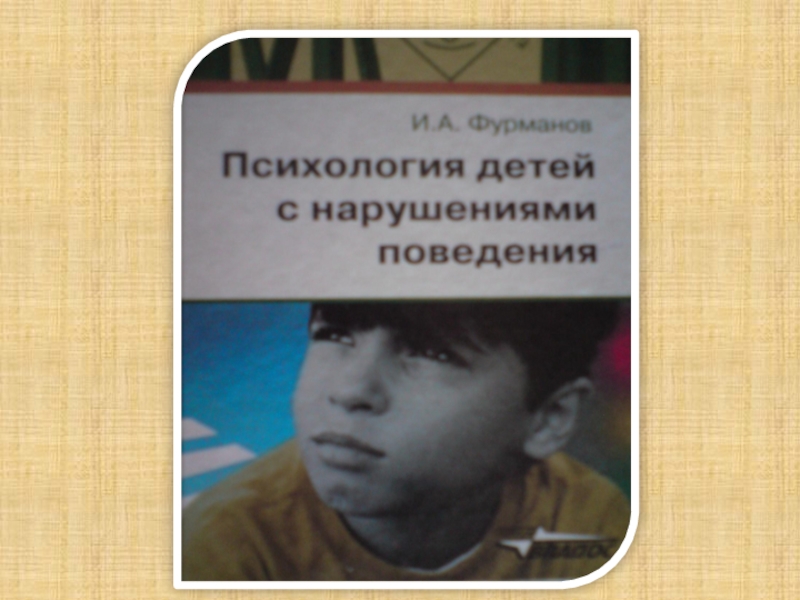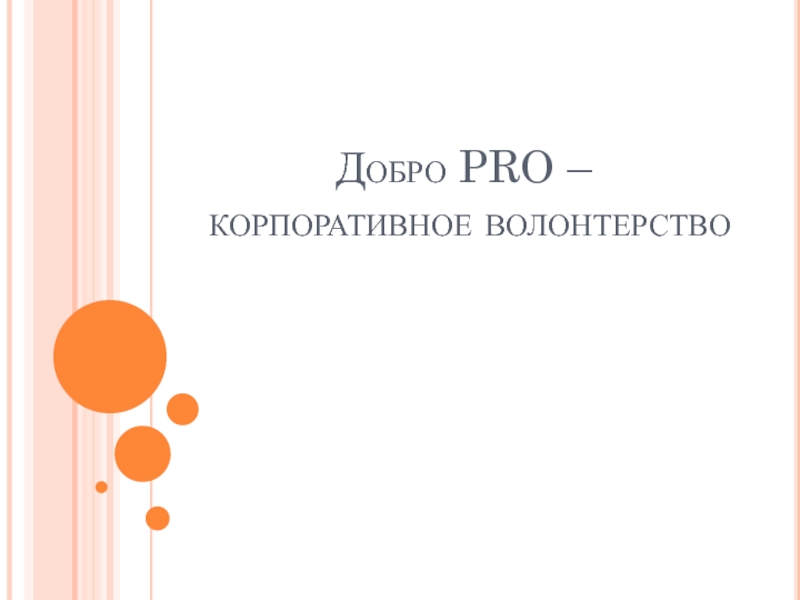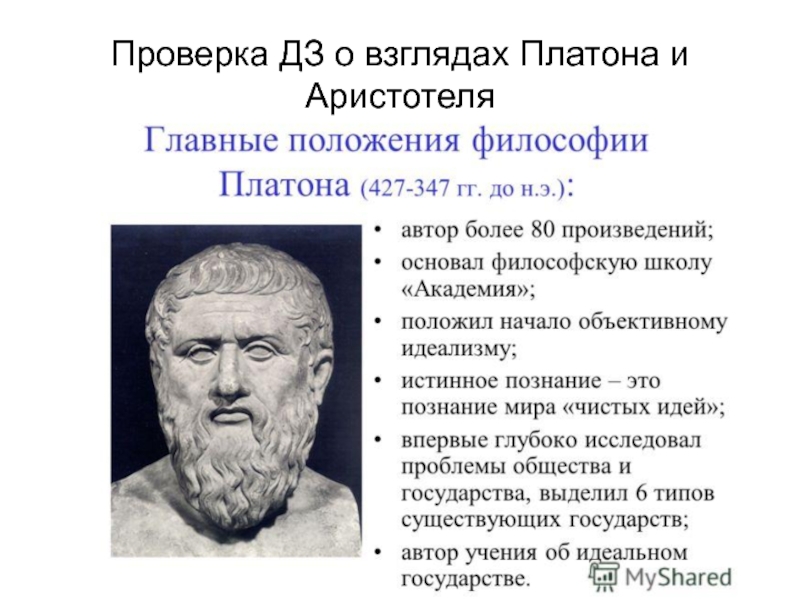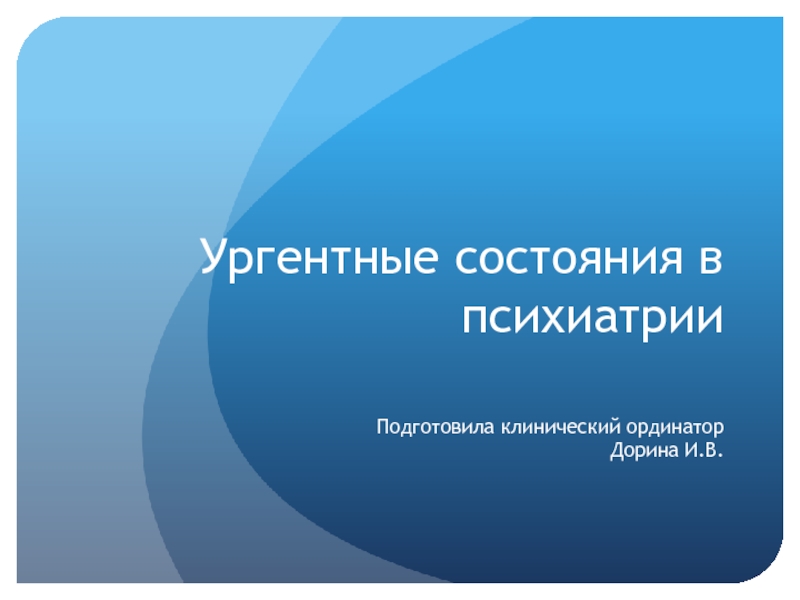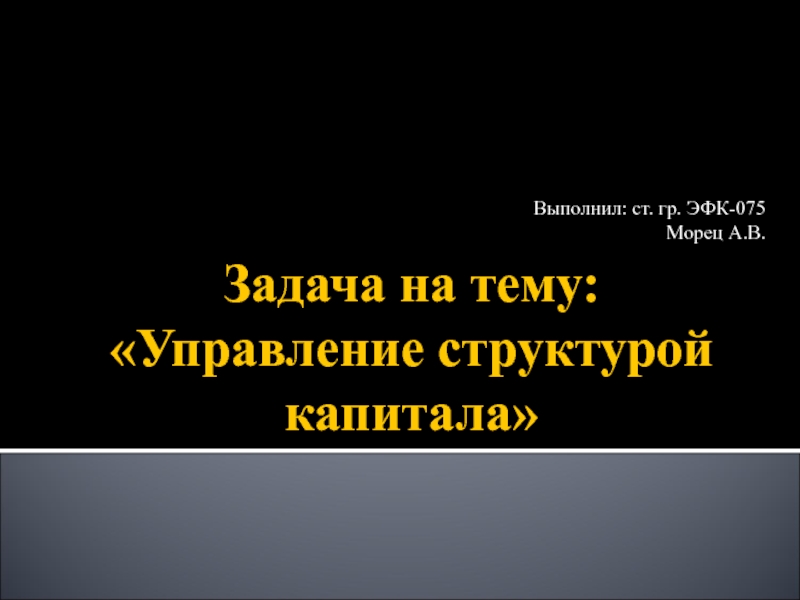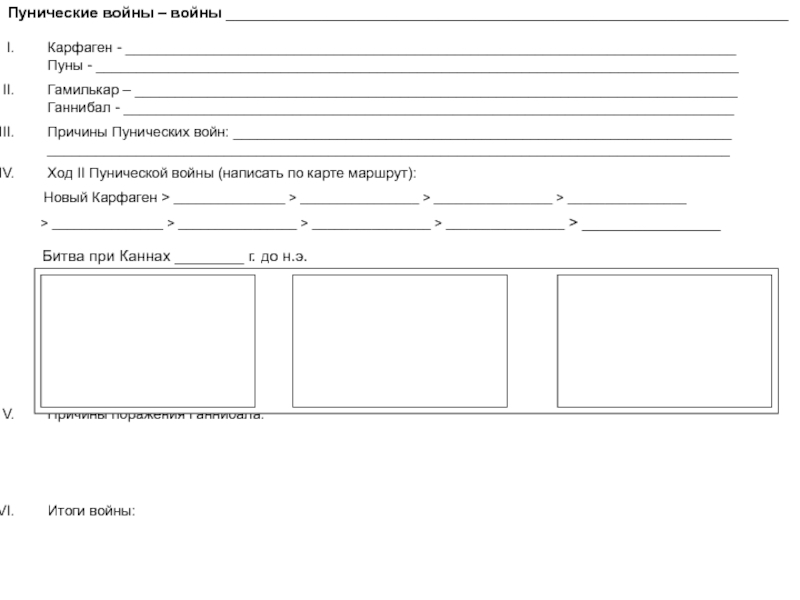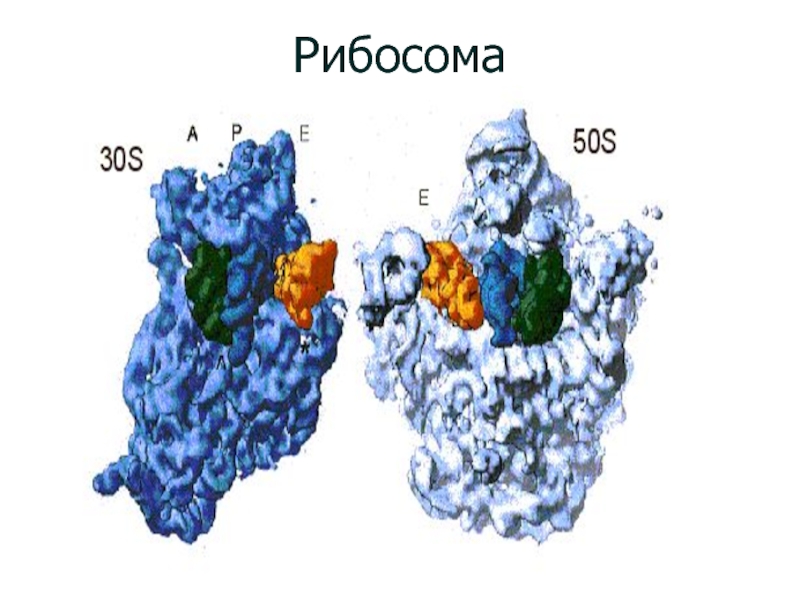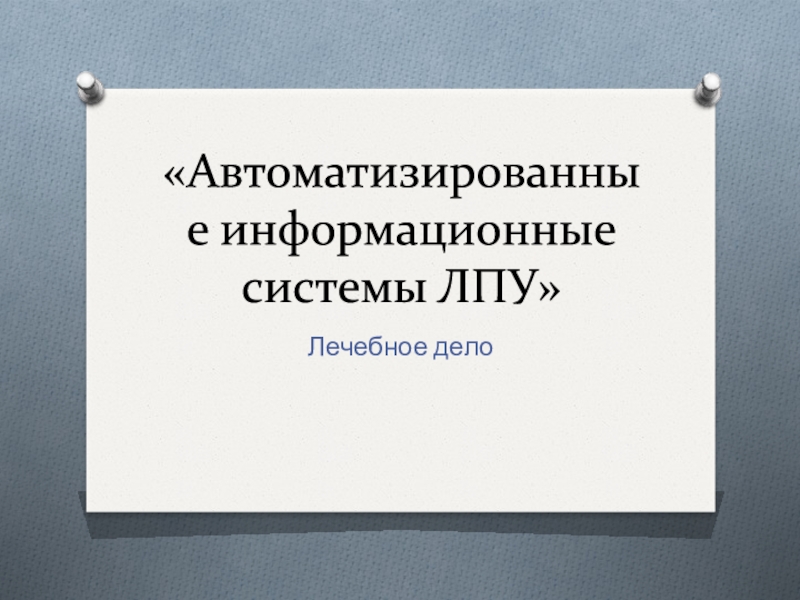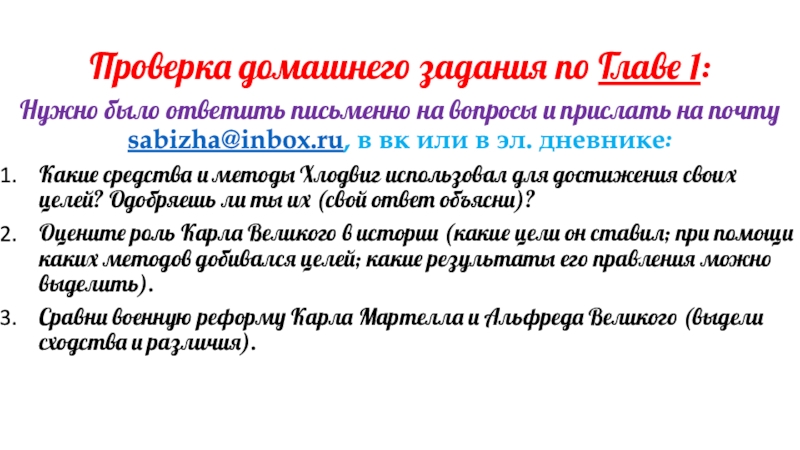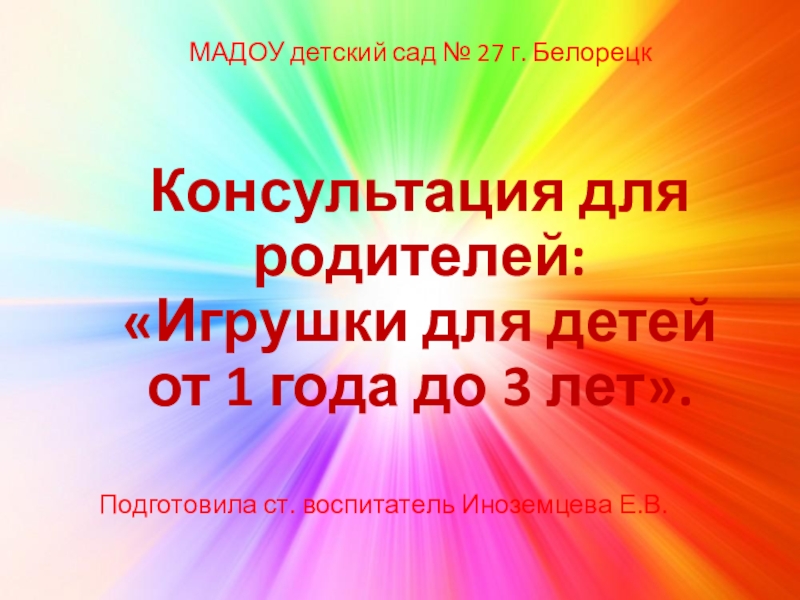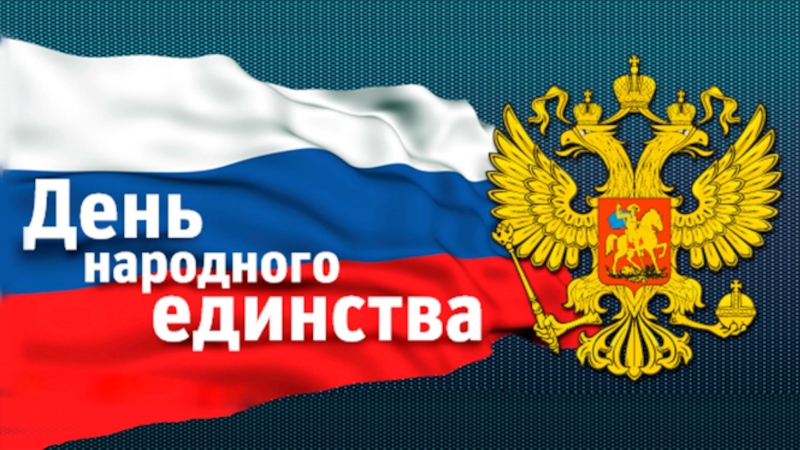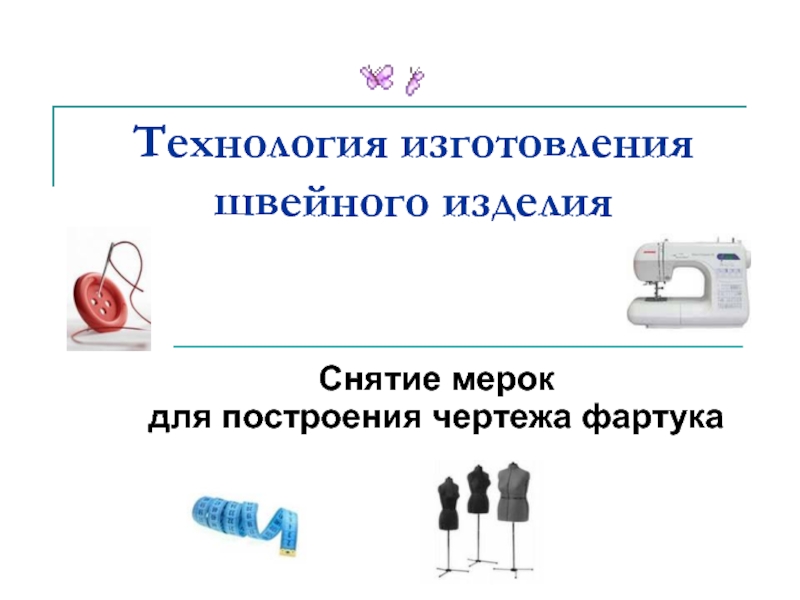Разделы презентаций
- Разное
- Английский язык
- Астрономия
- Алгебра
- Биология
- География
- Геометрия
- Детские презентации
- Информатика
- История
- Литература
- Математика
- Медицина
- Менеджмент
- Музыка
- МХК
- Немецкий язык
- ОБЖ
- Обществознание
- Окружающий мир
- Педагогика
- Русский язык
- Технология
- Физика
- Философия
- Химия
- Шаблоны, картинки для презентаций
- Экология
- Экономика
- Юриспруденция
SIW “The main methods of treatment are pharmacotherapy and psychotherapy from a
Содержание
- 1. SIW “The main methods of treatment are pharmacotherapy and psychotherapy from a
- 2. PlanIntroductionThe term of PsychopharmacologyClassification of group preparationsMechanism of actionIndications and contraindicationsList of literature
- 3. IntroductionAlthough psychotherapy and antidepressant medication are efficacious
- 4. Psychopharmacology is a section of pharmacology devoted
- 5. Classificationneuroleptics / antipsychotics; tranquilizers / anxiolytics; antidepressants; mood stabilizers; nootropics / noetics; psychostimulants; psychodisleptics.
- 6. Psychotropic drugs are drugs of various origins
- 7. Neuroleptic (antipsychotics) is a group of drugs
- 8. ClassificationA. “Typical” (causing extrapyramidal disorders):phenothiazine derivatives -
- 9. NeurolepticsAminazineDroperidolTriftazinHaloperidolChlorprothixenCyclopentixolClozapineOlanzapineFluorophenazineSulpirideRisperidoneTypes of actionAntipsychotic; (basic)Sedative;Hypothermic;Antihypertensive;Antiemetic;Antihistamine;Anti-emic;Potentiating to the action of analgesics, hypnotics, anticonvulsants.
- 10. Indication for treatmentHallucinatory-delusional, hebephricinic, catatonic syndromes; manic
- 11. Contraindicationsindividual intolerance;history of toxic agranulocytosis;angle-closure glaucoma;prostate adenoma
- 12. ANTIMANIACAL drugs (drugs for treating mania, NORMOTIMICS
- 13. 1. Salts of lithium.In manic-depressive psychosis, lithium
- 14. Tranquilizers(“Tranquillo-are” - to make calm, serene) or
- 15. Classification1,4-benzodiazepine derivatives = DB:Diazepam (Valium, Relanium, Sibazon,
- 16. Mechanism of actionSevere ANXIOLYTIC (anti-anxiety)anticonvulsiveMyorelaxativeHypno-sedativeVegetocorrective
- 17. Side effectsbenzodiazepines - drowsiness, lethargy, headache, disturbance
- 18. Indications for treatmentneurotic disorders, accompanied by a
- 19. SEDATIVE DRUGS (from lat. sedatio - sedation)these
- 20. SedativaInorganic nature: NaBr KBrCombine drugsPlant origina) monopreparations
- 21. Indicationspreneurotic disorders with increased excitability and accompanied
- 22. ANTIDEPRESSANTS - neuropsychotropic drugs that have the
- 23. A. Monoamine oxidase inhibitors (MAO):irreversible action: nialamide;reversible
- 24. Tricyclic antidepressants (TCAs) (increase the accumulation of
- 25. IndicationsDepressive states of various genesis;Psychopathy,Neurosis,Withdrawal syndrome;Nervous boulemia;Chronic pain syndrome.
- 26. Severe intoxication can be caused by a
- 27. List of literatureАвруцкий Г. Я., Недува А. А. Лечение психически больных: Руководство
- 28. Скачать презентанцию
Слайды и текст этой презентации
Слайд 1SIW “The main methods of treatment are pharmacotherapy and psychotherapy from
a position of evidence-based medicine”
Слайд 2Plan
Introduction
The term of Psychopharmacology
Classification of group preparations
Mechanism of action
Indications and
contraindications
List of literature
Слайд 3Introduction
Although psychotherapy and antidepressant medication are efficacious in the treatment
of depressive and anxiety disorders, it is not known whether
they are equally efficacious for all types of disorders, and whether all types of psychotherapy and antidepressants are equally efficacious for each disorder.Слайд 4Psychopharmacology
is a section of pharmacology devoted to the study
of the effects of drugs on the higher nervous activity
of the use of drugs for the treatment of mental illness. The selection of psychopharmacology in a special section of pharmacology is associated with the specificity and considerable complexity of the methodological techniques used by psychopharmacology.Слайд 5Classification
neuroleptics / antipsychotics;
tranquilizers / anxiolytics;
antidepressants;
mood stabilizers;
nootropics
/ noetics;
psychostimulants;
psychodisleptics.
Слайд 6Psychotropic drugs are drugs of various origins that have the
ability to restore impaired mental functions - attention, learning and
memory, perception, mood and emotions, thinkingPsychotropic drugs
with predominantly
Decriminating
(inhibitory, depressing
type of action)
with predominantly
EXCESSING
(activating, stimulating
type of action)
Sedatives;
Tranquilizers;
Neuroleptics;
Mood timers.
Psychostimulants;
Antidepressants;
Nootropics;
Adaptogens.
Слайд 7Neuroleptic (antipsychotics) is a group of drugs capable of reducing
psychotic or affective symptoms (hallucinations, delusions, autism) and psychomotor agitation
(aggressiveness and impulsivity) and thus slowing down the rate of development of psychosis and causing its regression.Слайд 8Classification
A. “Typical” (causing extrapyramidal disorders):
phenothiazine derivatives - chlorpromazine (aminazine);
etarazin;
diprazine; levomepromazine (tizercin), flufenazine (moditen depot); trifluoperazin (triftazin); periciazine (neuleptil);
thioridazine (readazine, sonapax);derivatives of thioxanthene - chlorprothixen (truksal); flupentixol (fluanksol); cuklopentyxol (clopixol).
butyrophenone derivatives - haloperidol (haloper, senorm, tranco-dol); droperidol
B. “Atypical” (not causing extrapyramidal disorders):
benzamides - sulpiride (restful, eglonil); tiaprid amisulpride (solian);
dibenzodiazepine derivatives - clozapine (alemoxan, leponex); olanzapine (zyprexa); quetiapine (seroquel).
benzyloxazole derivatives - risperidone (rispolept)
Слайд 9Neuroleptics
Aminazine
Droperidol
Triftazin
Haloperidol
Chlorprothixen
Cyclopentixol
Clozapine
Olanzapine
Fluorophenazine
Sulpiride
Risperidone
Types of action
Antipsychotic; (basic)
Sedative;
Hypothermic;
Antihypertensive;
Antiemetic;
Antihistamine;
Anti-emic;
Potentiating to the action of analgesics, hypnotics,
anticonvulsants.
Слайд 10Indication for treatment
Hallucinatory-delusional, hebephricinic, catatonic syndromes; manic arousal, agitated depression,
psychotonic arousal during epilepsy, chronic paranoid states
neurotic disorders (elimination of
fear, anxiety, sleep disturbance)premedication (preparation for anesthesia and surgery as part of a lytic mixture)
unrestrained vomiting during radiation and chemotherapy
Controlled hypothermia during operations on “dry” organs
neuroleptanalgesia
hypertensive crisis
Muscle hypertonus at stroke
Слайд 11Contraindications
individual intolerance;
history of toxic agranulocytosis;
angle-closure glaucoma;
prostate adenoma (for neuroleptics with
anticholinergic properties);
porphyria;
parkinsonism;
pheochromocytoma (for neuroleptics of the group of substituted benzamides);
a
history of allergic reactions to antipsychotics;severe violations of the kidneys and liver;
diseases of the cardiovascular system in the stage of decompensation;
acute febrile states;
intoxication with substances that inhibit the central nervous system;
coma;
pregnancy;
breastfeeding (especially for phenothiazine derivatives).
Слайд 12ANTIMANIACAL drugs (drugs for treating mania, NORMOTIMICS or “mood stabilizers”)
are medicines that can prevent mood changes in patients with
bipolar affective (manic-depressive) disorders.Classification
LITHIUM PREPARATIONS:
lithium carbonate (litosan, quilonium, contextmn),
Mikalit,
lithium oxybutyrate
Preparations of other pharmacological groups that have normochemical properties:
Carbamazepine (antiepileptic)
valproate (antiepileptic),
clonazepam (sedative, muscle-relaxing, anxiolytic and anticonvulsant)
nifedipine,
verapamil
Слайд 131. Salts of lithium.
In manic-depressive psychosis, lithium preparations are used
as a preventive therapy, and under condition of constant monitoring
of the lithium content in the blood, it is well tolerated. And with increasing concentrations above a certain level, dosage adjustment is made.In the absence of the possibility of such control, the frequency of side effects increases. The main side effects: increased thirst, tremor, nausea, muscle weakness, drowsiness, arrhythmia, changes in thyroid function.
2. Derivatives of carbazepine (carbamazepine and oxcarbazepine).
These drugs were originally used as anticonvulsants and in trigeminal neuralgia. Further study showed their effectiveness in the treatment of patients with affective disorders, paroxysmal pain, aggressiveness, behavioral disorders, alcoholism.
3. Valproates.
The exact mechanism of action of valproic acid in bipolar disorder is unknown, but there is evidence that it increases the synaptic concentration of gamma-aminobutyric acid (GABA), the main inhibitory neurotransmitter of the brain.
Mild side effects usually occur at the beginning of therapy and, as a rule, disappear on their own. These include gastrointestinal disorders (nausea, vomiting, loss of appetite, heartburn, diarrhea), sedation, tremor. At the beginning of therapy, about half of the patients have a sedative effect.
4. Lamotrigine.
Lamotrigine is a drug that was originally used to treat epilepsy. Further study revealed its effectiveness in the treatment and prevention of affective disorders (especially depressive).
Side effects are usually mild, but rash may occur in 10% of patients. Other side effects of lamotrigine include headache, symptoms of CNS damage (diplopia, ataxia, blurred vision), as well as nausea and vomiting.
Слайд 14Tranquilizers
(“Tranquillo-are” - to make calm, serene) or anxiolytics (from lat.
Anxius - alarming, seized with fear, i.e. “anti-anxiety”), or ataraktiki
(from lat. Ataraxia - equanimity of spirit, peace of mind) - medicinal means that have a calming effect, but in small therapeutic doses, eliminate internal psycho-emotional stress, anxiety, a sense of fear, hatred and fear of a neurotic nature.Слайд 15Classification
1,4-benzodiazepine derivatives = DB:
Diazepam (Valium, Relanium, Sibazon, Seduxen)
- Chlordiazepoxide
(Elenium),
- Medazepam (Rudotel)
- Alprazolam (Xanax);
Tofisopan (Grandaxine);
-
Lorazepam (Lorafen); .Tranquilizers of different chemical:
1. Serotonin receptor agonists: Buspirone (Spitomin) Afobazole,
2. M-holinoblokatory:
AMIZIL
3. Different:
hydroxyzine, mebikar.
Слайд 16Mechanism of action
Severe ANXIOLYTIC (anti-anxiety)
anticonvulsive
Myorelaxative
Hypno-sedative
Vegetocorrective
Слайд 17Side effects
benzodiazepines - drowsiness, lethargy, headache, disturbance of the mestrual
cycle;
serotonin receptor agonists (buspirone, afobazole) - very rarely headache, dizziness
In
case of poisoning with benzodiazepines - antagonist of BD receptors - FLUMAZENILСлайд 18Indications for treatment
neurotic disorders, accompanied by a feeling of fear
and anxiety, insomnia, etc .;
seizure syndrome and epilepsy;
migraine;
climacteric disorders;
eczema, pruritic
dermatitis;depressive states;
treatment of drug addiction and alcoholism;
potentiation of the action of hypnotic drugs and analgesics;
sedation before surgery.
Слайд 19SEDATIVE DRUGS (from lat. sedatio - sedation)
these are drugs that
restore the functional state of the central nervous system by
weakening excessive stimulation or enhancing the processes of weak inhibition in the nervous system in asthenic and psycho-emotional disorders preceding neurotic pathology.Слайд 20Sedativa
Inorganic nature:
NaBr
KBr
Combine drugs
Plant origin
a) monopreparations from:
Valerian
Motherwort
Mint
Melissa
Passiflora
Hops
Peony
Bromocamphor
Pertussin (thyme + KBr)
Corvalol (with
mint)Corvaldine (with mint and hops)
Valocordin (with mint and hops)
Valocormid (valerian + longhi +
+ hops + bellow + menthol + NaBr)
b) combined:
Gathering sedative (valerian + mint + trefoil + hops)
Persen (valerian + mint + lemon balm)
Novo-Passit
Phytosed (hawthorn + motherwort + hops + oats + melissa + coriander + clover)
Sanason (valerian + hops)
Nervogran (mint + lemon balm + chamomile + valerian + yarrow)
Nervoflux (Lavender + Melissa + Soladka + Hop + Valerian + Orange)
Слайд 21Indications
preneurotic disorders with increased excitability and accompanied by: coronary spasm,
a feeling of fear, anxiety, headache, fatigue,
insomnia,
increased convulsive readiness in
children,hyperthyroidism
climacteric disorders,
cardiopsychoneurosis,
smooth muscle spasms.
Слайд 22ANTIDEPRESSANTS - neuropsychotropic drugs that have the ability to alleviate
the effects of depression of various origins, improving emotional status,
mood, increasing overall activityСлайд 23A. Monoamine oxidase inhibitors (MAO):
irreversible action: nialamide;
reversible action: pyrazidol, befol,
moclobemide;
B. Reverse neuronal uptake inhibitors:
indiscriminate action: Amitriptyline (saroten), imizin, doxepin,
imipramine, mianserin * (lerivon);selective action:
- SSRI (serotonin) - sertraline (zoloft), fluoxetine (prozac); cytalapram (cipramil), paroxetine (paxil);
- Ioza (norepinephrine) - maprotiline
- IOSOL (serotonin and norepinephrine) –milnacipra (ixel)
Classificaton
Слайд 24Tricyclic antidepressants (TCAs) (increase the accumulation of serotonin and norepinephrine
in the CNS synapses, block m-XP, a2-AR, HP)
Imipramine (Imizin, Melipramine,
Tofranil) -Desipramine, Amitriptyline, Clomipramine
Selective Serotonin Reuptake Inhibitors (SSRIs)
Paroxetine (Paxil)
Citalopram (Tsipramil)
Fluoxetine (Prozac)
Fluvoxetine (Fevarin)
Sertralin (Zoloft)
Selective Noadrenaline Reuptake Inhibitors (NRIs)
Maprotiline, Desipramine
Слайд 25Indications
Depressive states of various genesis;
Psychopathy,
Neurosis,
Withdrawal syndrome;
Nervous boulemia;
Chronic pain syndrome.
Слайд 26Severe intoxication can be caused by a dose exceeding 1g
anticholinergic side effects +++
need for intensive cardiovascular therapy
Lethal dose ~
2gThe first symptoms may appear from 1-2 to 6 hours after the appointment
severe intoxication - cardiotoxicity +++
ventricular arrhythmia
coma - convulsions - respiratory decompensation
final bradycardia
DEATH 2 to 6 hours after administration
inside
Tricyclic Antidepressants
Side Effects
Слайд 27List of literature
Авруцкий Г. Я., Недува А. А. Лечение психически больных: Руководство для врачей. —
2-е изд., перераб. и доп. — М.: Медицина, 1988. —
528 с.Мосолов С. Н. Основы психофармакотерапии. — М.: Восток, 1996. — 288 с.
Козловский В. Л., Попов М. Ю. Перспективы патогенетического подхода к обоснованию фармакотерапии шизофрении // Социальная и клиническая психиатрия. — 2004. — № 1. — С. 97–102.
Темков И., Киров К. Клиническая психофармакология / Пер. с болг. Л. М. Розет; Ред. и предисл. Г. Я. Авруцкого. — М.: Медицина, 1971. — 356 с.
Вуд Ф. Психофармакология позднего возраста / Под ред. Р. Джекоби, К. Оппенгаймер; Пер. с англ. — 2-е изд. — Киев: Сфера, 2001. — Т. 1. — С. 205–232.
Каплан Г. И., Сэдок Б. Дж. Клиническая психиатрия / Пер. с англ. — М.: Медицина, 1994. — Т. 1. — 672 с.; Т. 2. — 524 с.

